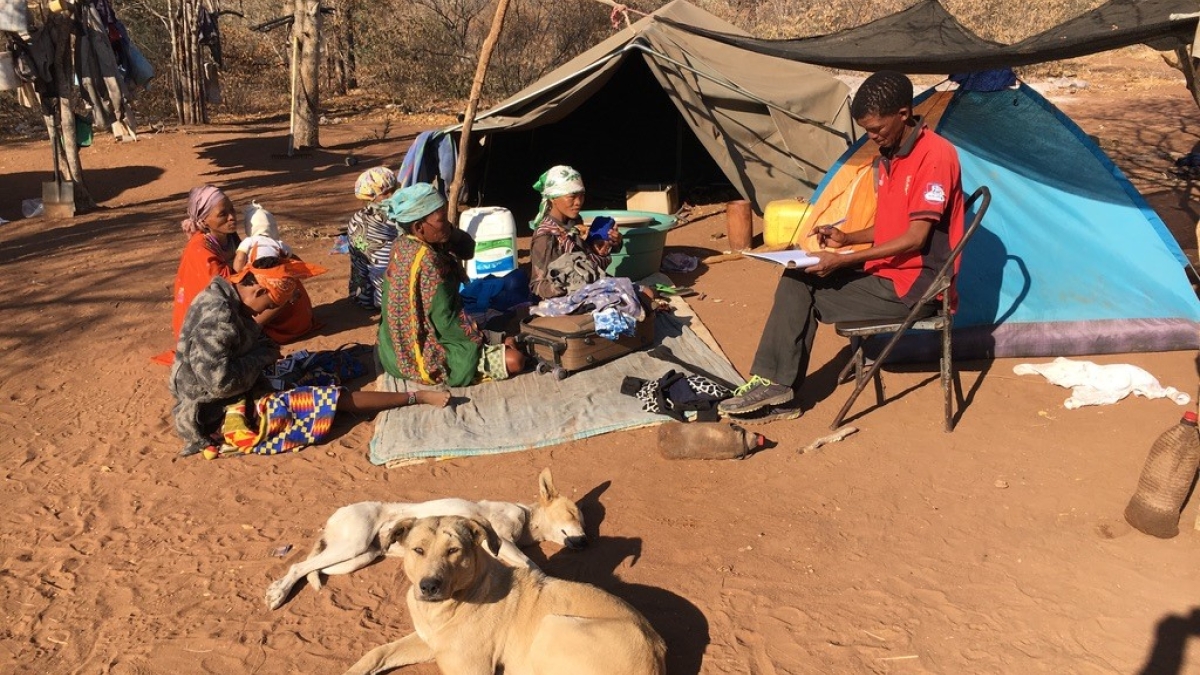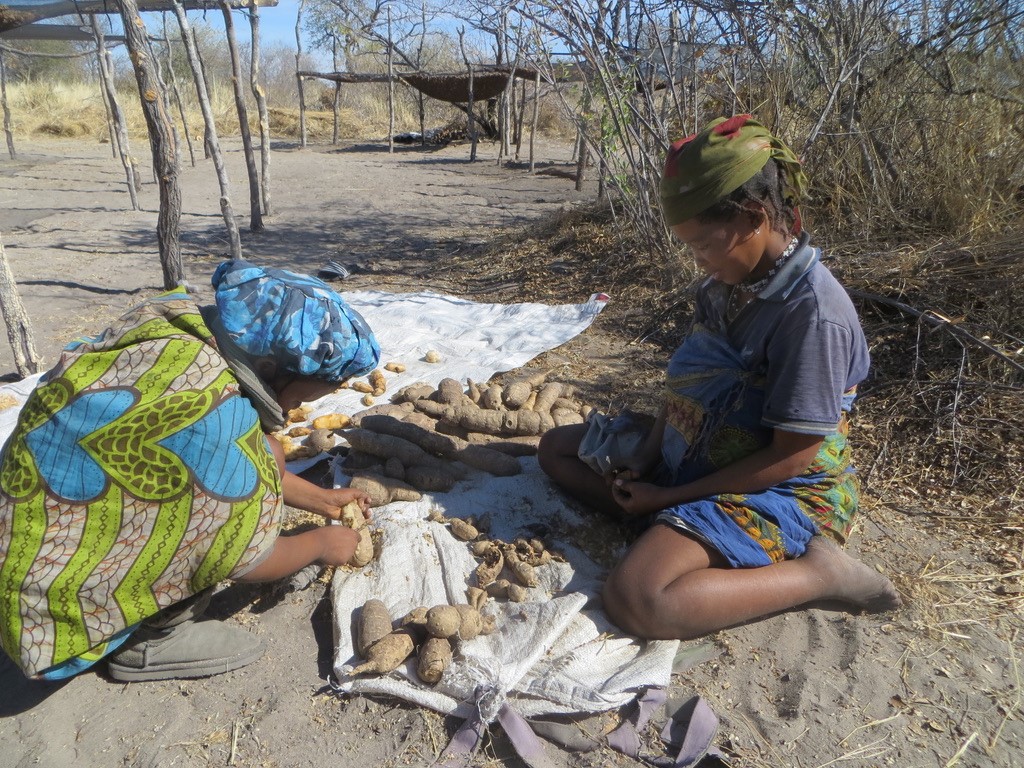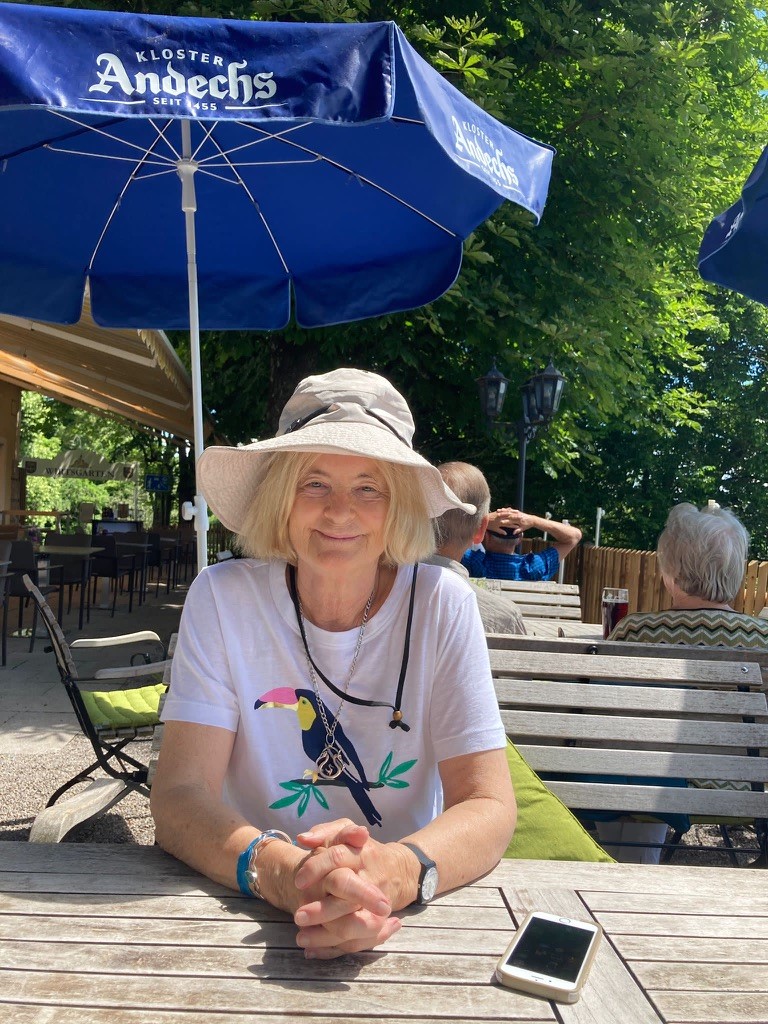Money changes what we consider to be a need, says ASU anthropologist

Members of the Ju/‘hoansi assist in research. Photo courtesy Polly Wiessner.
In 1974, Polly Wiessner meticulously documented gifts, sharing and relationships within the Ju/ꞌhoansi Bushmen of northeast Namibia and northwest Botswana. Over the next 44 years, Wiessner tracked how the introduction of money changed a historically hunter-gatherer society.
The findings, “A 44-year perspective on the influence of cash on Ju/’hoansi Bushman networks of sharing and gifting,” written by Wiessner with support from co-author Cindy Hsin-yee Huang, an anthropology PhD student, was recently published in the Proceedings of the National Academy of Sciences of the United States of America (PNAS).
Wiessner is an anthropology professor at the School of Human Evolution and Social Change at Arizona State University and is a member of the National Academy of Sciences. She discovered that the introduction of money into the Ju/’hoansi society produced two pivotal changes: money makes sharing expensive, and money redefines humans' definition of "need."
“I think this study tells us about what we see worldwide,” Wiessner said. “First of all, when you get cash, suddenly sharing it with other people becomes expensive, because cash introduces many individual interests you could pursue.”
Before cash, the Ju/’hoansi shared and gifted items both for survival and to build relationships, Wiessner said. One important practice the Ju/’hoansi used is “Hxaro,” where men and women have some 15 partners spread out over 200 kilometers where they can seek alternative residences and assistance in times of social or environmental failure.
With the introduction of money, Wiessner said she documented a decline in this practice in this need-based sharing society.
“Need-based sharing and giving usually works because the cost to the giver is low in relation to the benefit to the receiver,” Wiessner said. “But when you have cash, the cost to the giver is the same as the benefit to the receiver.”
The Ju/’hoansi now have a mixed economy and earn cash several ways. Wiessner said that most would not be able to feed their families without government assistance. Many harvest a root crop, devil’s claw, which is sold to pharmaceutical companies. Some people work construction, tourism and for the government, while most still engage in some hunting and gathering.
Women process devil’s claw, which is then used by the pharmaceutical industry as an analgesic. Photo courtesy Polly Wiessner
To understand the progression of these changes, interviews with Ju/’hoansi adults about their belongings were conducted in the early 1970s, then again in 2017 and 2018, and finally in 2020 and 2022, when Ju/’hoansi collaborators interviewed individuals about cash income, Hsin-yee Huang said.
“Dr. Wiessner explained the context of the data collected so that it wasn't just numbers on a spreadsheet — it was really about people and their relationships as expressed through material belongings,” said Hsin-yee Huang, who is an affiliate of the Institute of Human Origins. “Situating the information within the institutional and social context was really important in understanding what the information gathered really meant. The records of their belongings were really a record of their social connections, in a way, and reflected norms about their economy and social structure.”
While Wiessner’s research showed that money changed what the Ju/’hoansi considered a "need," it did not change the social, political or gender equalities within the culture. Within the Ju/’hoansi egalitarian culture, men and women are equal and nobody employs others to do their menial household work; elected leaders for modern institutions do not last long as Ju/’hoansi do not like the idea of one person representing others, Wiessner said.
Anthropologist Pauline (Polly) Wiessner.
Wiessner said common items the Ju/’hoansi need are mattresses, blankets and better shoes and clothes. However, once money started to be introduced into society, those people with more money and modern homes "needed" more modern items, like a refrigerator and solar power, she said.
Another change Wiessner noticed with the introduction of money is the emotional connection with the items that are being gifted.
“In the past, when you had gifting and sharing, the relationship and the item were entwined,” Wiessner said. “So if you’ve got a beautiful set of beads or a necklace, the social and the economic are woven together. With cash, you can detach things from relationships.
“So as you get more money, what you define as a need changes."
Throughout her decades of research, Wiessner has witnessed the need for the Ju/’hoansi to change their economy because of land losses to game reserves. They do not have the space to hunt and gather like they once did. Wiessner set up a nonprofit, “The Tradition and Transition Fund,” that helps to provide food and water security, as well as agricultural help, for the Ju/’hoansi.
More Arts, humanities and education
AI literacy course prepares ASU students to set cultural norms for new technology
As the use of artificial intelligence spreads rapidly to every discipline at Arizona State University, it’s essential for…

Grand Canyon National Park superintendent visits ASU, shares about efforts to welcome Indigenous voices back into the park
There are 11 tribes who have historic connections to the land and resources in the Grand Canyon National Park. Sadly, when the…
ASU film professor part of 'Cyberpunk' exhibit at Academy Museum in LA
Arizona State University filmmaker Alex Rivera sees cyberpunk as a perfect vehicle to represent the Latino experience.Cyberpunk…

